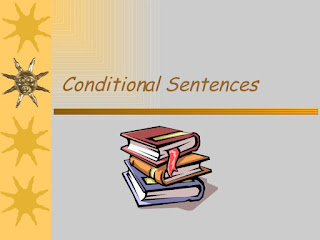CONDITIONAL SENTENCE TYPE 2
Conditional Sentence Type 2
This type is used to say something that is very unlikely to happen, or in other words, is almost impossible. This type of conditional sentence is suitable for expressing dreams and fantasies. The formula is:
If + past tense, past future
Past future + if + past tense
Example of sentences:
● If I became the President of this country, I would pay more attention to teachers' prosperity.
(If I become president of this country, I will pay more attention to the welfare of teachers.)
The sentence reveals what the speaker will do if he becomes president, however, if the speaker uses type 2 conditional sentences, it means that he thinks he will not become president in this country.
●If he didn’t have to work late, he could go out with his girlfriend.
●What would you do if you were offered a job in Canada?
●You wouldn’t have to walk everywhere if you bought a bike.
Formulas for Conditional Sentence Type 2
The conditional clause (if + condition) uses the simple past tense , while the main clause (result) section uses the modal verb and the bare infinitive (the infinitive without to ).
complex sentence | |
subordinate clause (if + condition) | main clause (result / consequence) |
if + simple past | would / could / might + bare infinitive |
formula and explanation of conditional sentence type 2
If-clause can be at the beginning or middle of a sentence. When if-clause takes place at the beginning of the sentence, a comma is placed before the main clause . If… not can be replaced by unless .
Were Replacing Was
In type 2 conditional sentences , were is used in place of was even though it uses a singular subject (single subject: 3rd person pronoun (she, he, it) or noun ). This is to show that the supposition is really just a delusion, because the conditions are unlikely to be met (present unreal situation).
complex sentence | |
subordinate clause (if + condition) | main clause (result / consequence) |
if + S + were | would / could / might + bare infinitive |
The present conditional tense
The present conditional of any verb is composed of two elements:
would + the infinitive of the main verb, without "to"
Subject | + would | + infinitive |
He | would | go |
They | would | stay |
To Go: present conditional
Affirmative | Negative | Interrogative | Interrogative negative |
I would go | I wouldn't go | Would I go? | Wouldn't I go? |
You would go | You wouldn't go | Would you go? | Wouldn't you go? |
He would go | He wouldn't go | Would he go? | Wouldn't he go? |
She would go | She wouldn't go | Would she go? | Wouldn't she go? |
We would go | We wouldn't go | Would we go? | Wouldn't we go? |
They would go | They wouldn't go | Would they go? | Wouldn't they go? |
Examples of Type 2 Conditional Sentence Sentences
Sentence | Examples of Type 2 Conditional Sentence Sentences |
(+) | If it rained tomorrow, I would sleep all day. Fact: but I don't have much hope it will rain (but I don't have enough confidence that it will rain tomorrow) |
If Nisa studied hard, she would pass. Fact: but Nisa doesn't study hard (but Nisa doesn't study hard.) | |
If I had much money, I would buy a sport car. Fact: but I don't have much money (but I don't have much money) | |
If I were a millionaire, I would donate my money to charity. Fact: but I'm not a millionaire (but I'm not a millionaire) | |
(-) | If Nisa studied hard, she wouldn't fail. |
If Nisa didn't study hard, she would fail. or Unless Nisa studied hard, she would fail. | |
If I were a millionaire, I wouldn't donate my money to charity. | |
(?) | If Nisa studied hard, would she pass? |
If you had much money, would you buy a sport car? | |
If you were a millionaire, would you donate my money to charity? |
Inverted Word Order on Conditional Sentence Type 2
Inverted word order means the verb appears before the subject . This condition can occur by removing the word "if" and changing the subject and verb positions . An example is as follows.
Normal | Inverted |
If I (S) were (V) the shopkeeper, I would give you discounts. | Were (V) I (S) the shopkeeper, I would give you discounts. |
To better understand it, please watch the video below





Komentar
Posting Komentar